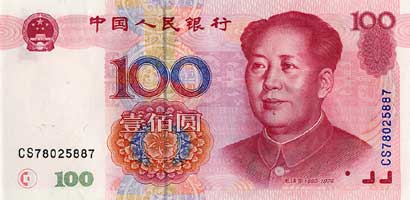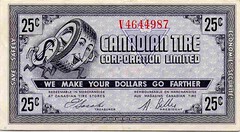US Dollar Facing Crisis, Is Canada Ready?
Financial Times:



Is appearance of words associating important events in Iran taking place in March, 2006 just coincidence? I came across a reference to that date in relation to nuclear weapon capability here. One author cites March as a significant month in Iran:
India Daily:
China indicated on Thursday it could begin to diversify its rapidly growing foreign exchange reserves away from the US dollar and government bonds – a potential shift with significant implications for global financial and commodity markets.
Economists estimate that more that 70 per cent of the reserves are invested in US dollar assets, which has helped to sustain the recent large US deficits. If China were to stop acquiring such a large proportion of dollars with its reserves – currently accumulating at about $15bn (€12.4bn) a month – it could put heavy downward pressure on the greenback.



Is appearance of words associating important events in Iran taking place in March, 2006 just coincidence? I came across a reference to that date in relation to nuclear weapon capability here. One author cites March as a significant month in Iran:
The most recent news reports indicate the oil bourse will start trading on March 20, 2006, coinciding with the Iranian New Year.[16] The implementation of the proposed Iranian oil Bourse – if successful in utilizing the euro as its oil transaction currency standard – essentially negates the previous two criteria as described by Mr. Yarjani regarding the solidification of a petroeuro system for international oil trades. It should also be noted that throughout 2003-2004 both Russia and China significantly increased their central bank holdings of the euro, which appears to be a coordinated move to facilitate the anticipated ascendance of the euro as a second World Reserve Currency. [17] [18] China’s announcement in July 2005 that it was re-valuing the yuan/RNB was not nearly as important as its decision to divorce itself from a U.S. dollar peg by moving towards a “basket of currencies” – likely to include the yen, euro, and dollar.[19] Additionally, the Chinese revaluation immediately lowered their monthly imported “oil bill” by 2%, given that oil trades are still priced in dollars, but it is unclear how much longer this monopoly arrangement will last.More on Iranian US economic hegemony eye-poking here.
India Daily:
It is about time. Finally America came out strongly against Chinese currency manipulation and artificial low value of Yuan.Australian Investment Review
U.S. Treasury Secretary John Snow says Washington is not satisfied "one bit" about China's currency issue and that Beijing should further revalue the yuan to allow for greater flexibility.
What does this means for China? Global Watch points out the Chinese want to pay their trading partners in their own local currency, rather than converting everything into a third currency.The peril of the US economy is not exactly new news. Kitco alluded to this in November 2004:
As a result, with their currency now valued against a basket of currencies, this process is much easier to facilitate, freeing the Chinese up from being effectively forced to hold a substantial amount of US dollar over and above its trading requirements with the US. Additionally, the report suggests with the balance of payments problem in the US eventually to see the US currency weaken, China will now be in a far better position to cope with such a revaluation.
Zhu Min, general manager and advisor to the President for the Bank of China was quoted in the China Daily earlier this year saying that: “The United States is benefiting from China using its trade surplus to buy U.S. Treasury paper as a reserve currency, along with other Asian nations. But in the long run, this is not sustainable.... China will focus more and more on domestic demand, which is growing fast. Then we won't be able to finance the U.S. deficit."Why should we worry about the health of the US economy? A commenter from Canada provides a thoughtful answer here:
And now that’s what’s happening. China is reportedly selling off their hoard of U.S. dollars to help build their much needed infrastructure and spend heavily to secure global resources.
A United Nations report points out that China’s recent prosperity has raised the living standard of 160 million Chinese who once existed in poverty. Behind them are another 800 million who are awaiting their turn to live a life once thought unattainable. The demand of goods and services from this group means an even greater global demand for resources.
The desire of China to tie up resources has been evidenced by China Minmetals Corp. who had been in exclusive talks with Noranda, one of Canada’s largest mining companies, in an attempt to buyout the company for an estimated $7 billion.
There was tremendous opposition to this plan however. Canadians argued that the Chinese government’s strategic interests in securing mineral supplies, and its management methods, could be contrary to the interest of Noranda, its workers, and the communities where it operates mines and processing facilities.
Some opponents to the deal also cited U.S. Congressional hearings that alleged that Minmetals has profited from forced labor from Chinese prisons.
But this is only one bid of many which has China trying to lock up global resources.
Very troubling for the United States is the fact that China has negotiated a new oil supply deal with Iran which would see Iran receiving both arms and cash. China has long standing alliances with Iran and is searching for new energy reserves to drive its booming economy. This new deal with China is not only an agreement to buy oil and gas from Iran but also to develop Iran’s Yadavaran oil field. After this field is developed, Iran will export 150,000 barrels of crude per day to China. This agreement has been valued at $70 billion.
China’s demand for oil outpaced its supply capabilities in 1993. China is now the world’s third largest importer of crude after the U.S. and Japan and their demand is growing. From January to October, China imported 99.6m tonnes of crude oil, exceeding the 91m tonnes imported in the whole of 2003, said reports quoting the General Administration of Customs. Imports of crude oil in 2004 are expected to reach 120m tonnes, the second largest in the world after the US.
Demand for electricity is also on the rise in China. Despite record production of coal and a 15% rise in power generation over the first 10 months of the year, dozens of Chinese cities suffered brown-outs during this past summer. And this winter it looks like many will be left without heat for extended periods. The China Daily reports that Beijing has only 50% of the coal it needs this winter, while Jilin has stores of 40%, half the level of this time last year.
So the multi billion dollar question is what happens when China starts selling U.S. dollars to help expand their infrastructure and secure their resources?
Well you’re already seeing it. Interest rates go up, the dollar goes down, and gold takes flight upwards. Not to mention upward pressure on oil, gas, coal, copper and other key commodities.
The implications of this fact are staggering. And demand for commodities will be overwhelming. Insightful investors who can see this trend and position themselves now in growth oriented equities holding gold, oil, copper and other key commodities will be sitting pretty if a few years time and will have weathered the U.S. dollar collapse better then most.
This is the hugest threat to the U.S. economy right now yet it’s hardly ever mentioned by the mainstream media.
Thank you Stefan for a great article.Makes Mr. Martin's rhetoric about the health of the Canadian economy and Liberal-Party sustained national unity sound a tad hollow, does it not?
I am encouraged to chip in my own analysis of the state of my homeland, Canada.
Taxes and regulation are worse than the USA but better than Europe. Moves toward lower corporate taxes are being offset by heavier taxes to support socialized medical care (in the most populous province of Ontario a heavy "health premium" tax has recently been imposed). Implementation of the Kyoto Accord will mean extra tax and regulatory burdens on industries and households. The welfare state is expanding - for example the federal government is introducing a national subsidized daycare program. The political system has sunk into a miasm of corruption, which is the inevitable result of a government seizing control of so much of a nation's economy. The provincial and municipal governments are crying with greater and greater shrillness for the federal government to give them more money to fund their own welfare systems and various pork-barrel "infrastructure" projects.
Demographically, Canada also suffers from a disasterously low birth rate, but this is offset by a rate of immigration which is by far the highest in the world. I am skeptical as to whether much benefit will accrue from all this immigration, since an increasing percentage of the immigrants are the sick and the old (attracted by the free medicare), and also because they are hardly landing in a free-market zone where their labour and investments can be used for the benefit of themselves and the greater economy.
I find the whole spectrum of industry in Canada to be weak and dependent on government subsidies and protection. Even the natural resources sector has gobbled huge amounts of government "assistance" to bring online various energy projects, diamond mines, etc. The manufacturing sector seems to be in permanent decline as companies such as GM Canada and Bombardier cry louder and louder for more government aid, and Nortel feels the need to put the ex-Finance Minister of Canada on its board of directors. The largest remaining steel producer seems to be spending a lot of money here in the nation's capital lobbying for more cash because, "our strength is people" (i.e., pay up or the voters in Steeltown get it!) It's hard to see how anyone will be able to establish new and successful businesses when so many corporate welfare queens have their hands in the public purse.
The current boom in Canada is driven partly by cheap credit, and partly by the resource boom as Canadian raw materials are sold for high prices to the USA, China and Japan. Canada also has a disasterously low personal savings rate. No other country in the world is as dependent on exports to the USA. As Stefan pointed out on this blog a little while ago, Canada has a trade surplus with the USA but a trade deficit with the rest of the world. Therefore no other nation is more vulnerable than Canada to a severe recession in the USA.
In the event of a 1930s-style depression, it is possible that Canada won't survive as a federation. The population is a lot more ethnically and politically heterogeneous than in my grandparents' time. It is more and more common for tensions over the more intrusive federal government policies to result in a segment of the population starting up the cry for secession. A Yugoslavian-style piecemeal breakup could occur in the event of a severe economic crisis (without the protracted civil war). Obviously the federal government would try to prevent this by slathering generous amounts of welfare onto the hot spots, but this might only escalate the tensions between the net payers into the federation and the net payees.
My only hope is for a nationwide recognition of the value of free markets to take hold in the citizenry, and a rejection of the welfare state. Perhaps these reforms could be introduced gradually into "free market zones", the way they brought to China in the 1980s and 90s. Failing that, and if there is no breakup, the alternative is an economically comatose oligarchic/kleptocratic welfare state based primarily on state-sponsored exploitation and tax farming of Canada's natural resources - like Russia, but with greater tolerance of foreign investment.


<< Home